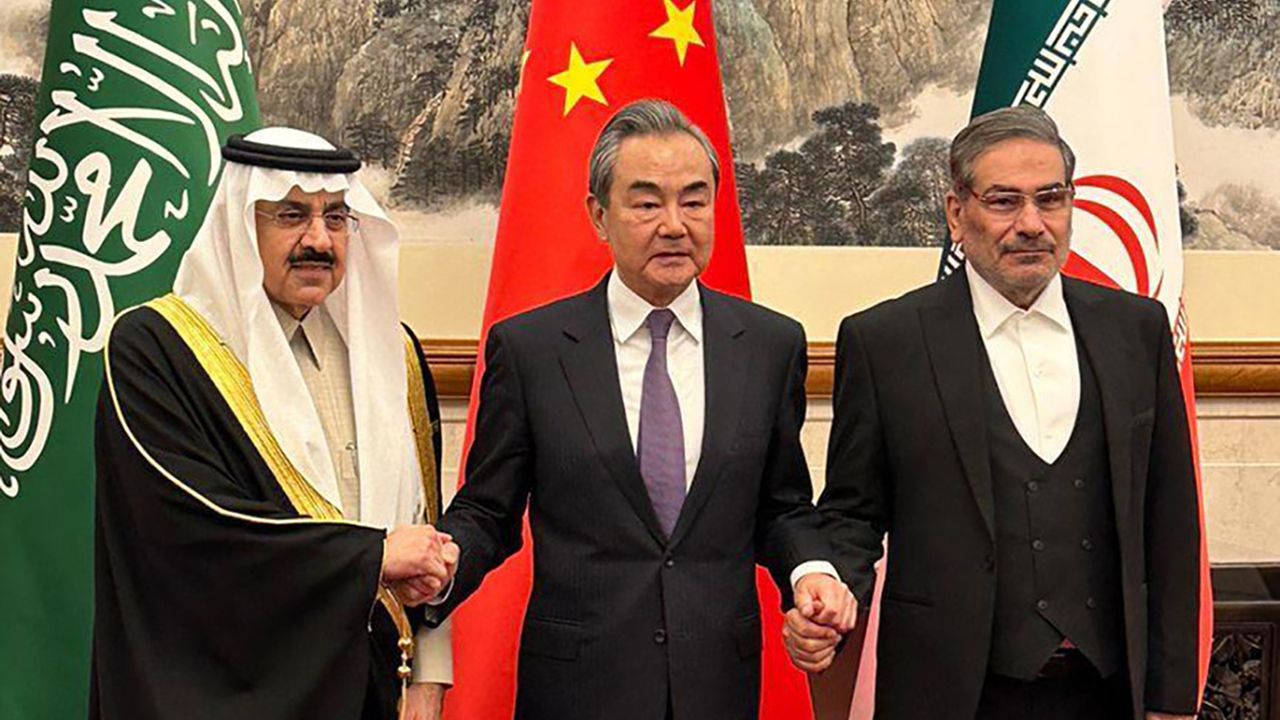News Highlight
Iran and Saudi Arabia agree to resume ties with China’s help.
Key Takeaway
- After seven years of hostility, Iran and Saudi Arabia agreed on Friday to resume diplomatic relations and reopen embassies.
- The major diplomatic agreement reached with China reduces the likelihood of armed war between Mideast foes directly and through proxy conflicts throughout the area.
- The two countries intend to reopen their embassies in Tehran and Riyadh.
- They also pledged to respect countries’ sovereignty and refrain from interfering in domestic matters.
- They also agreed to renew a 2001 security cooperation pact and 1998 general economic, trade, and investment deal.
The conflict between Iran and Saudi Arabia
- Attacks on Saudi Arabia
- After the United States exited the Iran nuclear deal, Iran was implicated in a series of strikes.
- It included one in 2019 that targeted the heart of Saudi Arabia’s oil industry.
- Western nations and academics have put the strike on Iran, which has denied responsibility.
- Religious Factor
- Saudi Arabia severed ties with Iran in 2016 when demonstrators stormed Saudi diplomatic installations days after Saudi Arabia murdered a prominent Shiite cleric.
- Saudi Arabia has traditionally portrayed itself as the world’s leading Sunni nation.
- Iran sees itself as the guardian of Islam’s Shiite minority.
- Regional Cold War
- They are two powerful neighbours in a bloody battle for regional domination.
- Uprisings in the Arab world prompted political unrest throughout the area.
- They used the upheavals to expand their influence, notably in Syria, Bahrain, and Yemen, raising further mutual tensions.
- Furthermore, other powers, such as the United States and Israel, significantly worsened the confrontation between Saudi Arabia and Iran.
Global Implications
- The agreement may have ramifications for a US-led attempt to isolate Iran through sanctions economically.
- It may permit potential Saudi investment within Iran.
- In Yemen, the Saudis have supported the internationally recognised government in an eight-year civil war against Iranian-backed Houthi rebels.
- Still, they have been looking for a means to end the conflict by holding private discussions with the Houthis in Oman.
- Saudi Arabia hopes that Iran will stop Houthi drone and missile attacks on the kingdom and that Tehran will assist Saudi negotiations with the Houthis.
- The agreement will concern several Israeli lawmakers who have sought worldwide isolation from Israel’s arch-enemy Iran.
- Israel saw the pact as a “serious and dangerous” development.
Implications for India
- Trade
- Iran and Saudi Arabia are significant commercial partners for India.
- Normalising relations between them could create new chances for commerce and investment.
- It results in greater economic opportunities for India.
- Energy Security
- Iran and Saudi Arabia are the world’s two largest oil producers.
- Any dispute between them might cause oil price hikes that greatly influence India’s energy security.
- The normalisation of relations between these two countries could assist in stabilising global oil prices and securing a steady oil supply to India.
- Regional Stability
- India has significant economic and strategic interests in the Middle East, notably the International North-South Transport Corridor (INSTC).
- Iran is a country in India’s immediate neighbourhood.
- Any unrest in the region can potentially have far-reaching ramifications for India.
- Normalizing relations between Iran and Saudi Arabia could lead to better regional stability, lowering the danger of conflict and terrorism.
- Geopolitics
- India has friendly relations with Iran and Saudi Arabia, contributing to the region’s peace and stability.
- Normalizing relations between these two countries could aid India’s attempts to foster regional peace and security.
- Yet, Chinese mediation between Iran and Saudi Arabia may pose difficulties for India because it will help China’s growing influence in the area.
Conclusion
- India can help achieve regional stability by encouraging discussion and collaboration between these two countries.
- India must remain watchful in the face of growing Chinese influence in the area and fight to secure its strategic interests in the Middle East.
Pic Courtesy: Wall Street Journal
Content Source: Indian Express



